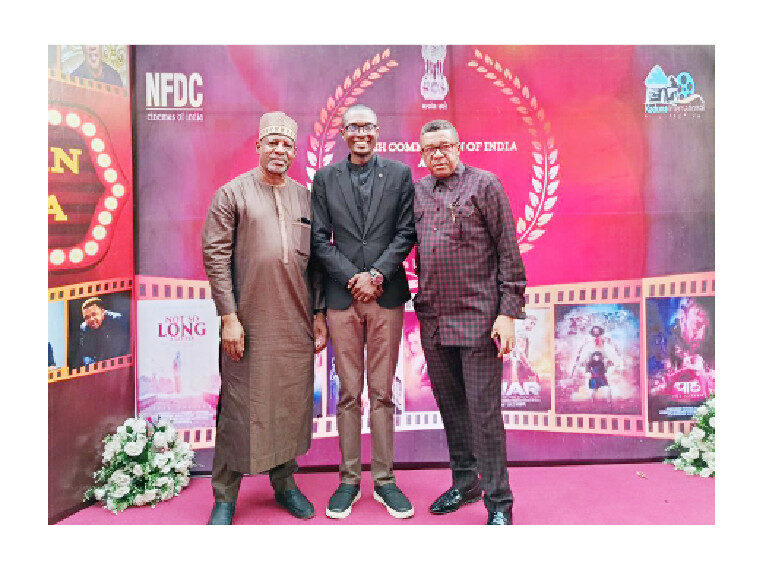India has announced a new film project in Nigeria titled Yamarita.
The High Commissioner of India to Nigeria, Mr Abishek Singh, made this known at the second edition of the Nigeria India Film Festival held recently in Abuja.
Aimed at promoting Indian culture in Nigeria through film, Yamarita borrows its name from a popular Nigerian snack: thinly sliced, fried yams coated in egg, flour, ginger, garlic, and salt, which will be served to Nigerian viewers during the screening of Indian films across major cities in Nigeria.
Acknowledging the cultural similarities between Nigeria and India, and the need for increased filmic collaboration between both countries, Singh said, “Culture is a bridge, and we get a feel of what Indian culture is like through Bollywood films, just as Indians are going to get a sense of what Nigerian culture is like through Nigerian films. This festival and the Yamarita Project act like bridges between our cultures.
“I understand that Indian films are already popular in Nigeria. I want to assure you that we will do everything possible to make Nigerian films popular in India,” he said.
It will be recalled that, thus far, Nigeria and India have had two filmic collaborations, with the feature film, ‘Namaste Wahala’ (2021), and the limited series, ‘Postcards’ (2024), both created by Indian filmmaker Hamisha Daryani Ahuja, and shot in the cities of Lagos and Mumbai.
Although in its natal stage, the Nigeria Indian Film Festival – organised by the Kaduna International Film Festival (KADIFF) and the Indian High Commission in Nigeria- has seen two Nigerians, including actor Zack Orji, participate in the maiden World Audio Visual & Entertainment Summit, held in Ahmedabad, Mumbai, India.
However, as acknowledged earlier, Indian films have long dominated the Nigerian film industry. Most boomers and millennials can attest to having watched more Indian movies than Nigerian movies while growing up.
For Nigerian films to break into the Indian television and cable TV market, Israel Audu Kashim, founder and director of KADIFF, said government support is crucial, particularly in creating structured platforms that enable Nigerian filmmakers to engage with their counterparts in other countries worldwide.
“The current success of Nollywood films across the African continent is the result of the efforts of individual filmmakers. For countries to collaborate with Nigerian filmmakers, it’s usually done through direct relations with individual filmmakers or via guilds.
“We (filmmakers and government) should collaborate and work on the exportation of Nigerian culture to India. We can start with one or two individual filmmakers this year, and with time, we will have more Nigerian films shown in India.”
He also urged the dubbing and subtitling of Nigerian films in Indian languages (s) following their export to increase visibility in India.
With the theme ‘Celebration of Our Rich Cultural Heritage and the Need for Collaboration’, the second Nigeria-India film festival is hosted by KADIFF and NFDC Cinemas of India. It featured a panel session, and two films – an award-winning Indian short film – ‘Good Morning’ (2024) (winner, Best Short Film, Dadasaheb Phalke Awards), and ‘Not So Long A Letter’, a girl’s rights advocacy film, written, directed and produced by Chima Igbokwe.















